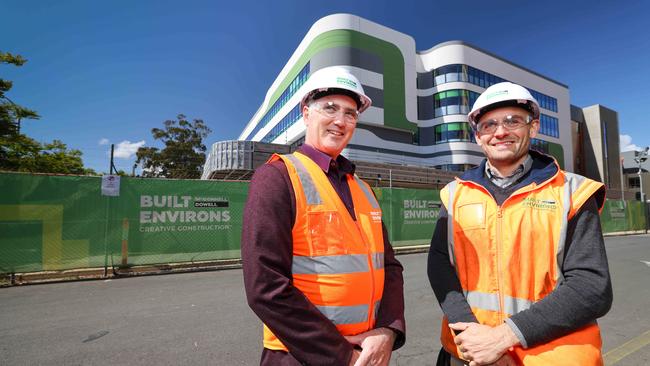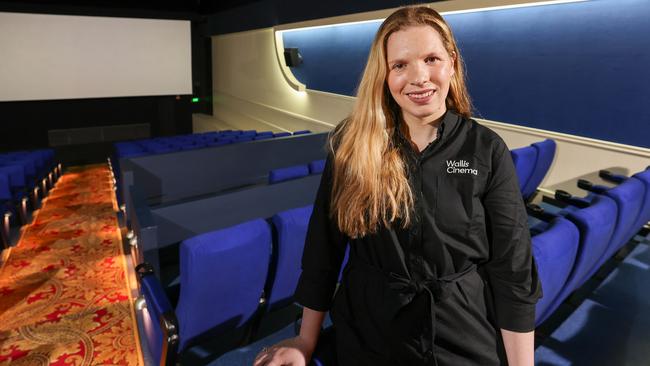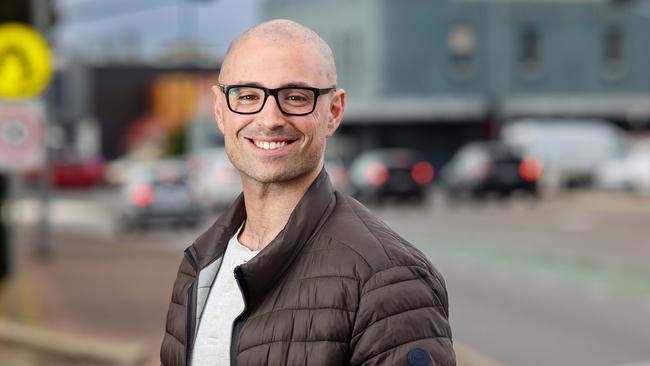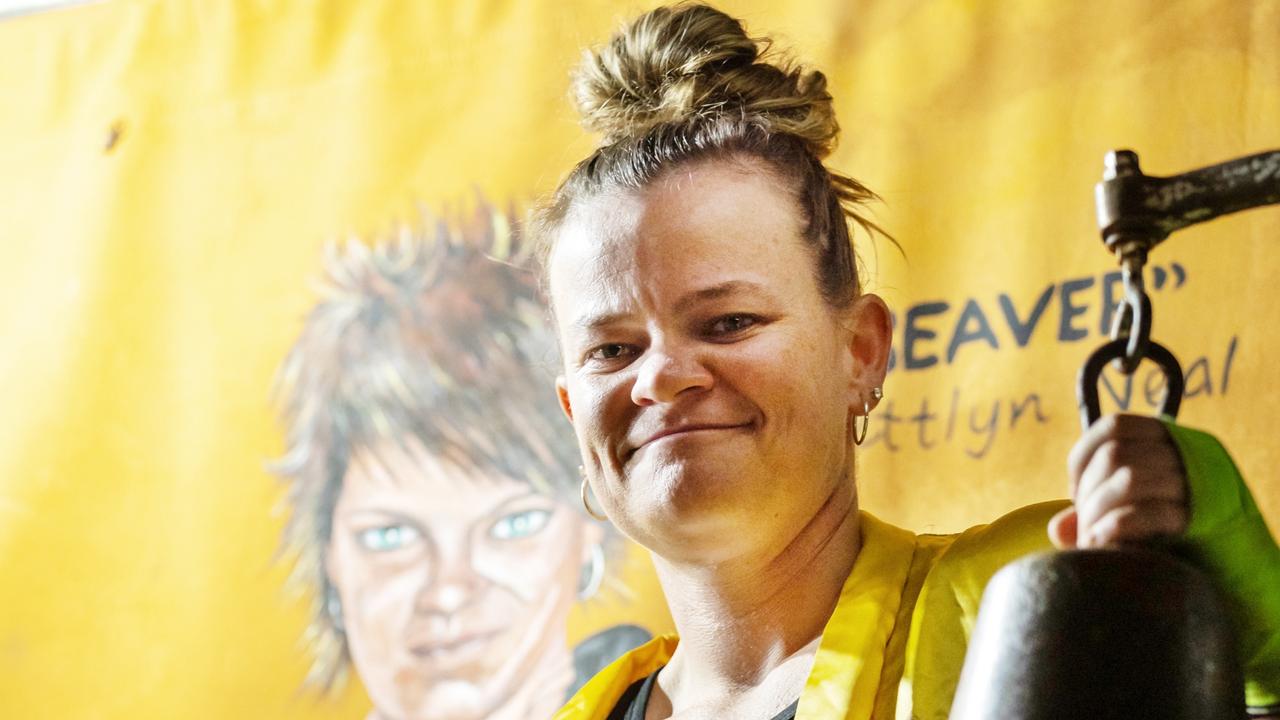Clearing a path to grow South Australia’s neurodivergent workforce
Rethinking recruitment practices is key to supporting autistic people in finding employment. See the new government campaign.
SA News
Don't miss out on the headlines from SA News. Followed categories will be added to My News.
One of the nation’s leading commercial construction contractors is urging businesses to be open-minded to the qualities and strengths autistic people can bring to the workforce.
Built Environs has been designing and constructing some of Australia and New Zealand’s most significant buildings across the health, defence, accommodation, office, sports, recreation and education sectors for the past 35 years. In South Australia, projects have included the commercial development of 150 Grenfell St, the Modbury Hospital upgrade and the current Queen Elizabeth Hospital (TQEH) stage 3 redevelopment.
Luke Goldup, project manager at TQEH, says businesses should consider diverging from traditional interview practices to give neurodivergent candidates a greater chance of success.
“Consideration and accommodations should always be made on how much value a candidate can add to the specific role as opposed to how well they interview,” he says. “Businesses will be most inclusive if management listens to and offers flexibility to accommodate the autistic individual’s specific requirements within the workplace, which may be simple for the business but important for the individual.”
Built Environs has adopted this flexibility in regard to one of its own employees, Malcolm Mayfield, a contract administrator who has worked on both the Modbury Hospital and TQEH projects.

“We are upfront with Malcolm on the role management should play with employees regardless of being autistic,” Goldup says. “I feel it is important to support him in the work he produces for the business. Our team minimises creating unnecessary change and office disruption so Malcolm can maintain focus, and is always open to listen and learn from his experiences.
The efforts have paid off. “Malcolm has an incredibly strong cost management ability using spreadsheets and he’s great with numbers,” Goldup says. “He is our go-to if there is a complex cost management task requiring strong attention to detail.
Not only does Malcolm produce quality work but he’s also honest, fair and highly reliable which has earned him the respect of Built Environs staff as well as our subcontractors, suppliers, quantity surveyors and clients.”
Mayfield – who is also the founder and managing director of Autism STAR, which provides employment-focused training, advocacy and recruitment to people on the spectrum – agrees there is a need for businesses to rethink their recruitment processes to create a more diverse workforce.
“The challenge for a lot of people on the spectrum is that the job interview is designed around someone who can present well,” he says.
“You might have a non-verbal person or a non-traditional communicator who can easily text or type messages but won’t or can’t speak and so might get overlooked – whereas if someone came into a job as a deaf person, they would be considered for their ability.
“Employers think autism is too difficult to manage so autistic people don’t get their foot in the door. It’s one of the most underemployed sectors of any disability group.”
Deanna unleashes her unique superpowers

Deanna Wallis loves being unique. “I have some very cool superpowers that not many people have,” she says.
Those superpowers have proven invaluable in her role as communications director for her family owned business, Wallis Cinemas. “Because of my autism and creativity, I can see things in a different perspective due to my attention to detail. I’ve started working on projects I can manage, design and create myself, which is really cool.”
Like most jobs, her role can present challenges but Wallis has learned to overcome and even embrace any difficulties that may arise. “Being in boardroom situations and giving presentations or meeting with members of government and council can be very overwhelming because I have strong social anxiety,” she says.
“I constantly have to do speeches – on our opening night at Piccadilly, I had to speak in front of 400 people. That was a lot for anyone, let alone an autistic person. So it does cause some complications at times but I’ve learned how to work through it and do the absolute best I can. And if sometimes I get a bit overwhelmed and I need to remove myself from the situation, then so be it.”
For Wallis, one of the biggest frustrations is society’s tendency to put everyone in the same box. “There’s a stigma that you can pick autistic people just by looking at them – but you can’t,” she says. “So many people when I’ve shared that I am autistic say they would never have seen that. I always say don’t judge a book by its cover because there’s more going on than you’d ever think about.”
A tendency to overlook an autistic person’s potential is another hurdle to overcome. “I think the biggest misconception is that we’re not capable – but we are capable of so much more than people think. There is such awareness when it comes to people with physical disabilities but there’s other hidden disabilities. I think workplaces need to open their doors. When people feel supported and valued, they’re going to flourish. So let’s give autistic people the environment to flourish.
Driving for change to let potential shine

Dorian Tisato compares receiving his autism diagnosis at the age of 19 to having a blindfold removed from his eyes.
“Before I found out I was autistic they said I was PDD NOS (Pervasive Developmental Disorder – Not Otherwise Specified),” says Tisato, a radio presenter with the Australian Traffic Network. “It made a lot of learning very difficult.
“I couldn’t see my identity before the diagnosis. I often thought, ‘I’m either an alien or my life is The Truman Show and everyone’s in on the joke except me’. At the time it was a very difficult pill to swallow but, once I was able to find out who I was, I could let go of what I was.”
Tisato worked as a personal trainer before graduating from UniSA with a double degree in journalism and writing and creative content. After stints at Mix 102.3 and Cruise 1323, he moved to the Australian Traffic Network in 2019.
“I love working. I get this real sense of enjoyment knowing I have accomplished something and put in the hard yards,” he says. “I am so lucky to be where I am. The saying goes, ‘If you love what you do, you never work a hard day in your life’. To me it never feels like work because I love it so much. You should always have that sense of passion, of enjoyment.”
But it hasn’t always been easy. “People don’t realise I’ve had to claw and almost fight and hustle to get where I am,” he says. “I sometimes feel there’s a door that stops me from getting where I need to be and I can either walk the other way and forget about it or I can kick the door down. I’ve left a lot of doors locked.
“But none of that bothers me any more. I’m happy to be where I am right now.”
Tisato is keen to encourage other businesses to open their doors – and their mindsets – to giving more autistic people the opportunity to show their capabilities.
“If a workplace isn’t autism friendly, you are robbing that autistic person of a chance to shine. And if they can’t shine, you’re missing out on the potential they could bring.”
Originally published as Clearing a path to grow South Australia’s neurodivergent workforce



